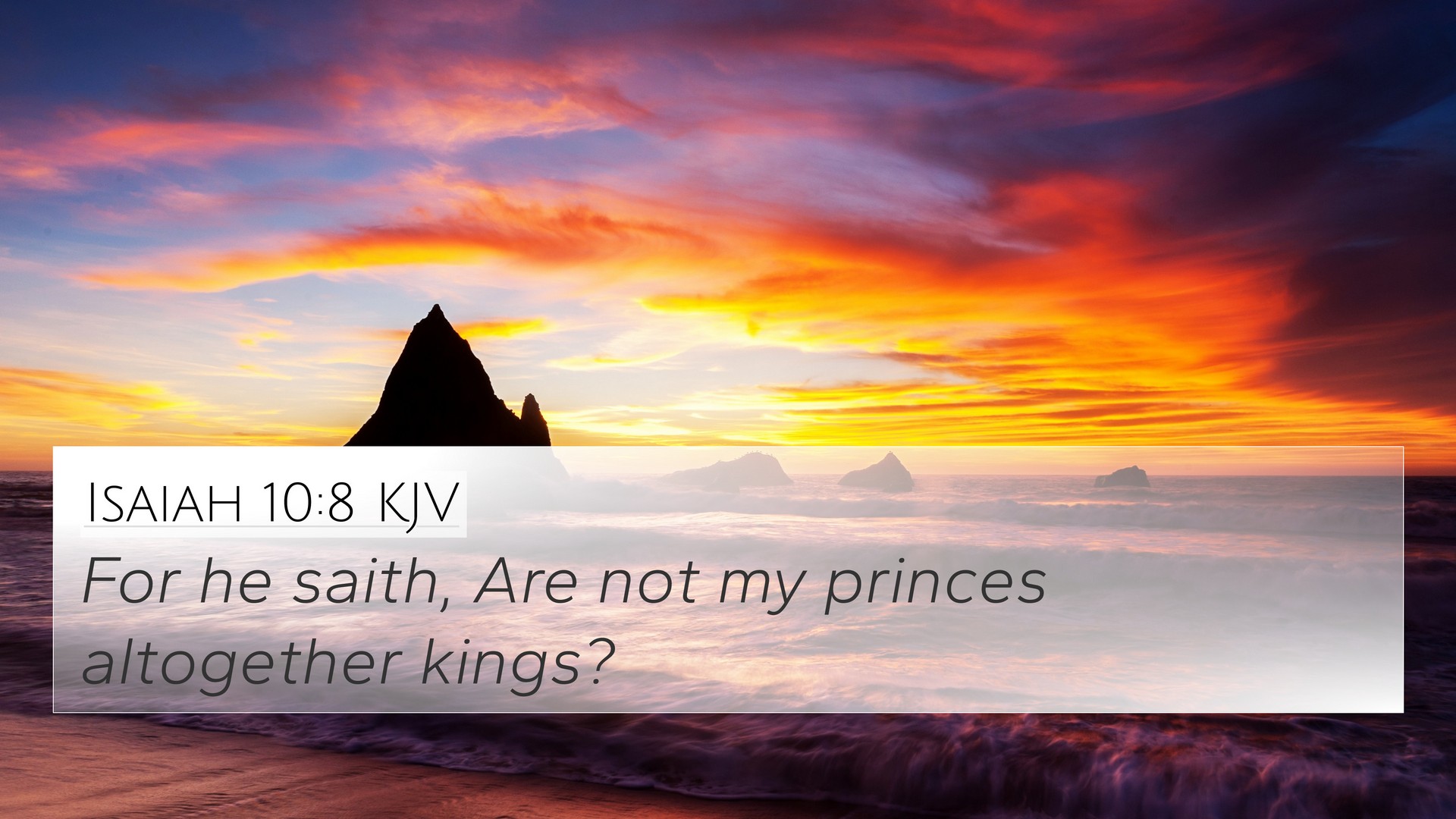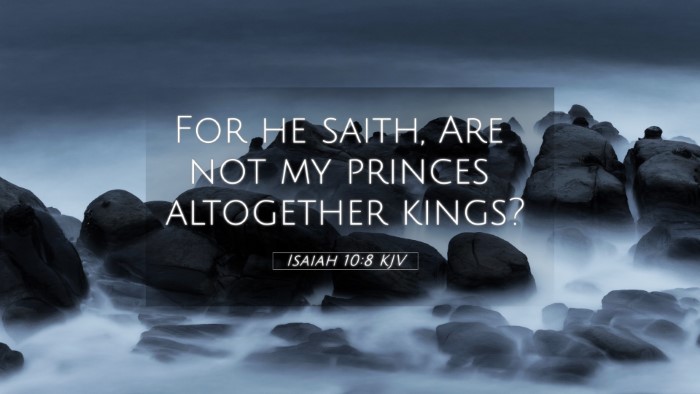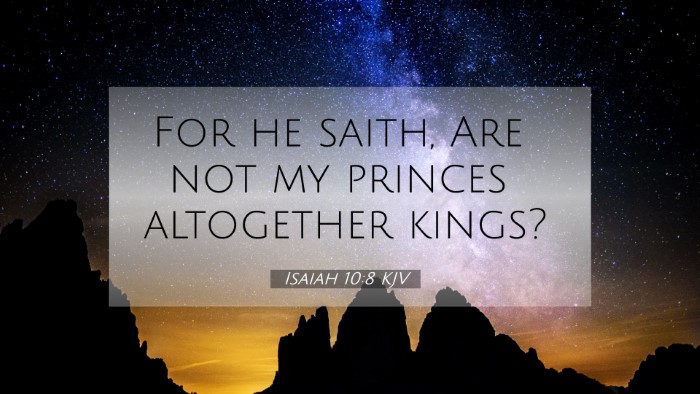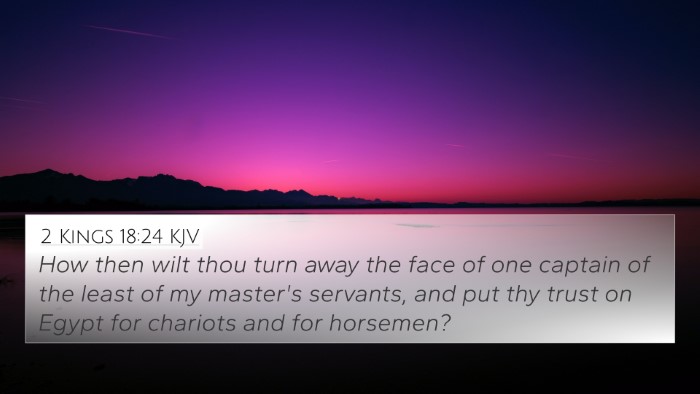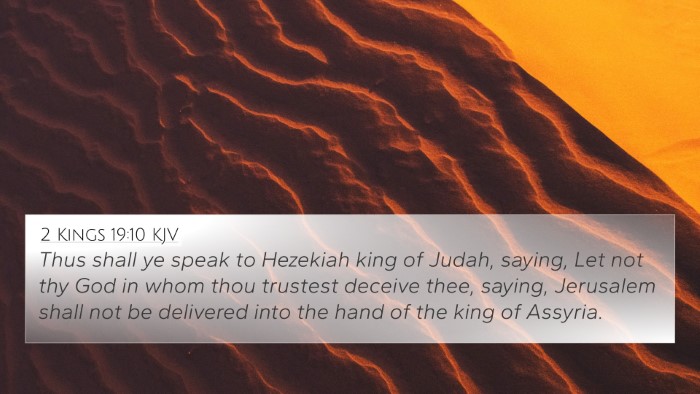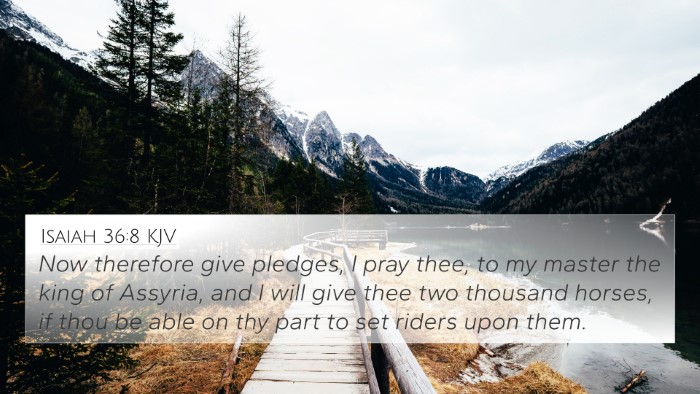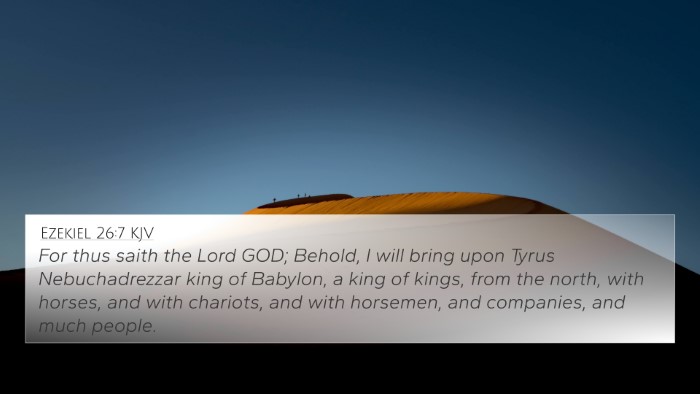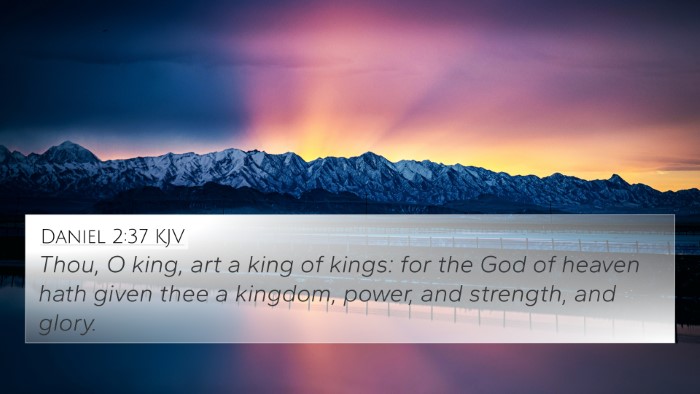Understanding Isaiah 10:8
Isaiah 10:8 states, “For he saith, Are not my princes altogether kings?” This verse is part of a larger passage where the Lord addresses the arrogance and pride of earthly rulers, particularly the Assyrian king, and highlights the futility of human power without divine oversight.
Overview of Isaiah 10:8
This verse encapsulates themes of pride, power, and the sovereignty of God over human affairs. The Assyrian king boasts about his power and status, likening his officials to kings, which suggests a sense of superiority. This proclamation indicates a misunderstanding of true authority, which ultimately resides with God.
Commentary Insights
Matthew Henry's Commentary
Henry emphasizes the arrogance of the Assyrian king, who equates his princes with kings, demonstrating a delusional sense of grandeur. He notes that this statement reflects the king's pride and ignorance of God's ultimate judgment and control over every authority.
Albert Barnes' Notes
Barnes highlights the context of this verse as a critique of Assyrian pride, suggesting that such boastfulness will not go unpunished. Barnes outlines that the kings mentioned are really mere subordinates in a greater scheme under God's providence and that earthly power is temporary and subject to divine governance.
Adam Clarke's Commentary
Clarke points out that the phrase “my princes altogether kings” serves to underline the hubris that characterized the Assyrian monarch. He stresses the futility of boasting in military power and the eventual downfall that awaits those who elevate themselves against God's plan.
Theological Themes
- Human Pride: The verse illustrates the danger of human pride and self-aggrandizement in positions of power.
- Divine Sovereignty: It underlines the sovereignty of God over earthly authorities and kingdoms.
- Judgment of the Proud: The verse serves as a warning that pride leads to destruction, echoing biblical lessons found throughout scripture.
Bible Verse Cross-References
The following verses provide thematic connections and insights that relate to Isaiah 10:8:
- Isaiah 14:13-14: Reflects on the pride of Lucifer, drawing parallels to human arrogance.
- Proverbs 16:18: "Pride goes before destruction," serving as a warning against hubris.
- James 4:6: "God opposes the proud but gives grace to the humble," emphasizing God's stance against pride.
- Psalm 75:7: "It is God who judges; He brings one down, He exalts another," reiterating divine control over rulers.
- Romans 13:1: "Let everyone be subject to the governing authorities," reminding believers of God's order in governance.
- Micah 6:8: Illustrates God's requirements for justice and humility, contrasting human pride.
- Daniel 4:37: Daniel praises God for His sovereignty, acknowledging that earthly rulers are under His authority.
- Proverbs 11:2: "When pride comes, then comes disgrace," reinforcing the consequences of arrogance.
- Job 40:12: God challenges Job to look upon the proud and bring them low, again illustrating divine sovereignty.
- 1 Peter 5:5: "God opposes the proud but shows favor to the humble," echoing the theme of humility over pride.
Conclusions and Reflections
In summary, Isaiah 10:8 serves as a poignant reminder of the limits of human authority and the dangers of pride. Through a careful analysis and cross-referencing with other biblical texts, we gain deeper insight into the ongoing themes of God's sovereignty, judgment, and the essential need for humility in all aspects of life. Recognizing connections between Bible verses enriches our understanding and highlights the cohesive nature of scriptural teachings on these pivotal themes.
